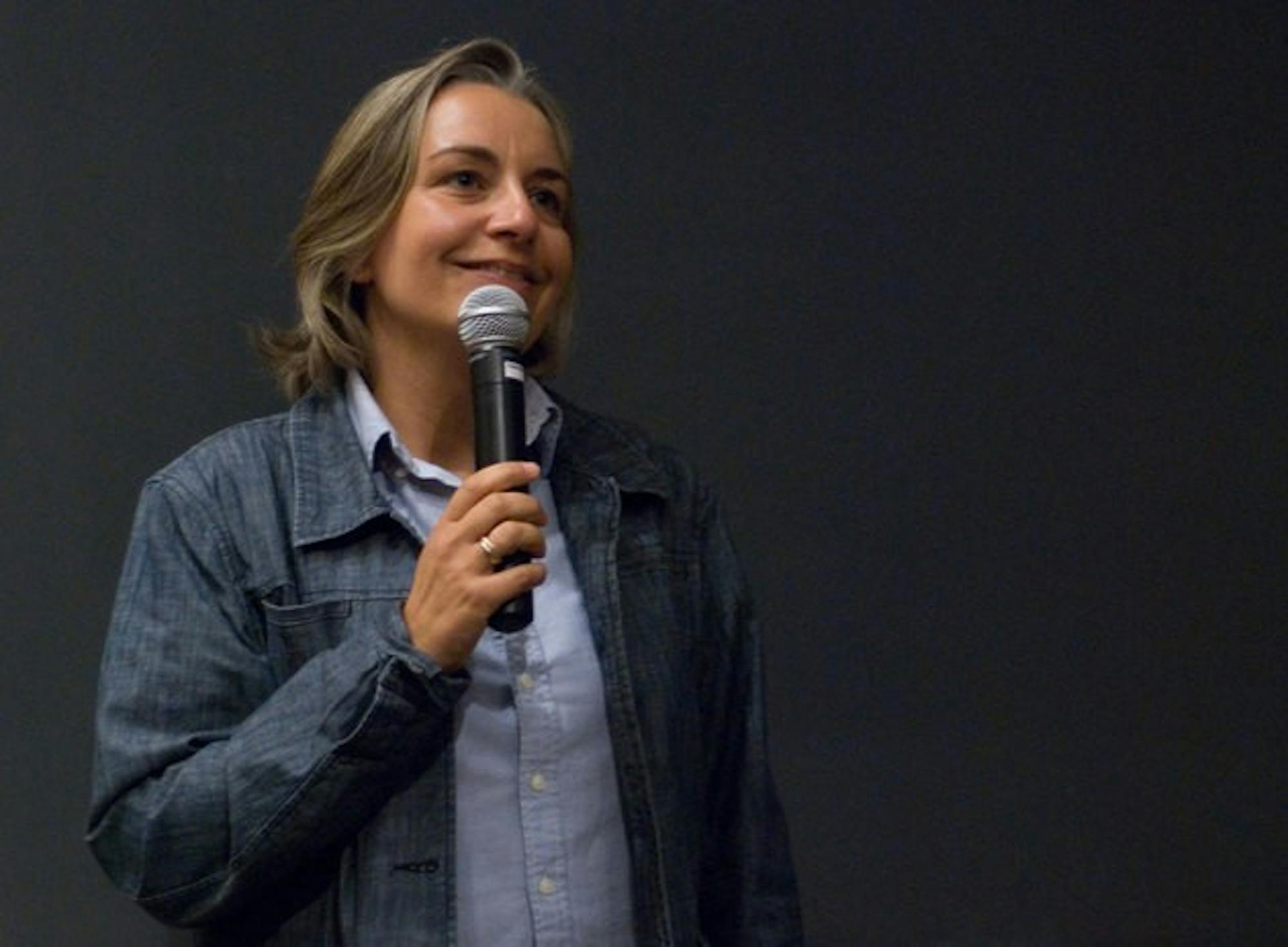Niedringhaus presented a 30-minute slideshow of more than 200 photos before discussing her coverage of the war in Iraq as an Associated Press photographer and more specifically, of the 2003 invasion of Fallujah, as one of few photojournalists privileged to report the event. The photographs captured the smiling and the crying -- both soldiers and civilians -- along with Saddam statue topplers, hurried refugees and even a Santa Claus rallying U.S. troops.
When the slideshow came to an end and the piano melody accompaniment had sounded its last note, the audience sat without saying anything for almost two minutes.
"It was sort of striking how [the slideshow] ended and there was dead silence, no one moved," B.R. King '08 said. "The images there were just truly striking."
Breaking the stillness, English professor and journalist Alexis Jetter, who introduced Niedringhaus, asked the photographer about how she gained access to the invasion of Fallujah and what responsibilities she felt as one of the few photojournalists allowed to cover the event.
"From the very beginning [of the war in Iraq], I was in Baghadad and there were rumors about the 'push,' as they called it. I e-mailed the military and the Marines to see if I could set up an [embedment with a unit of troops]," Niedringhaus said. "Two weeks before the invasion, I got a response. It was never mentioned that it was Fallujah, but you knew. I quickly packed my equipment -- very, very light equipment because I had to carry it. Fallujah was an invasion on foot."
Niedringhaus described her cargo as including only her camera equipment, one sleeping bag, her cell phone and laptop, one T-shirt and one pair of jeans.
She also described how just two days before the invasion, she was kicked out of her embedment with her unit because the military was angered by the content of photos she had published of prisoners hooded in sandbags. After making her case that her removal would mean that the military would be without a major American press agency covering the operation, Niedringhaus was allowed to stay with the unit.
"I would do it again, but I would think now twice. It was very, very dangerous," she said. "Sixty percent of my unit died getting into Fallujah."
On the issue of self-censorship, she said she felt it was inappropriate to transmit pictures of dead Marines because "the family has a right not to see it on Yahoo." Niedringhaus noted that only a handful of the 223 photos she displayed pictured dead bodies. She said she chooses instead to show the war "through emotions."
The Pulitzer Prize winner, who is on a sabbatical to study as a fellow at the Nieman Foundation for Journalism at Harvard University, said the conditions in Iraq have worsened drastically for reporters covering the conflict today.
"You pick up a camera and you look like a Christmas tree, you're exposed," Niedringhaus said. "It's pretty much a no-go zone -- [reporters today] put their lives pretty much in danger."
More than her stories, it was the body of her work that left audience members astonished. One woman asked Niedringhaus about how the war is affecting children, who were frequently the subjects of her pictures.
"Children, I find amazing," she responded. "They don't have time to play or for education -- they just have to grow up. You see it in their eyes. I think [the war is] destroying another generation."
Mike Knapp '08 attended the lecture partly because it was a requirement for his journalism class, but also because he is considering joining the Marines.
"I thought her discussion of going into Fallujah was interesting, especially when she talked about being censored," Knapp said. "It's an interesting balance the military has to find in how far to open things up."
Niedringhaus' presentation was a part of the Rockefeller Center's Bernard D. Nossiter '47 lecture series, which brings a Nieman Fellow to Dartmouth each year.




